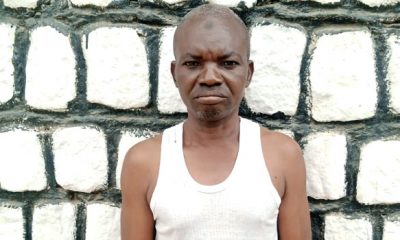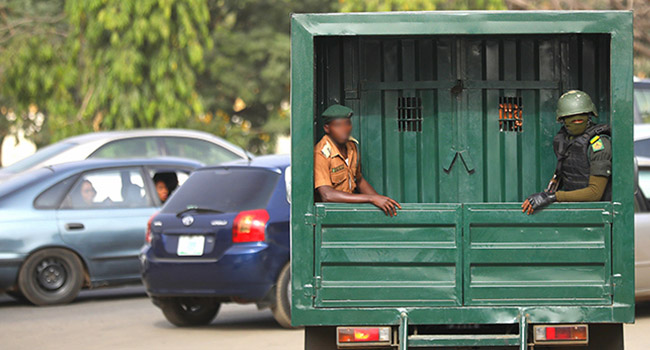The quiet town of Suleja in Niger State is under a shadow of tension following a dramatic jailbreak last week at the Suleja Medium Security Custodial Center. The breakout occurred on a stormy night on April 17, 2024, with 118 prisoners initially escaping. Since then, authorities have managed to recapture 14, but 105 detainees remain at large, keeping the local community on edge.
The Daring Escape Under Harsh Conditions
The escape was orchestrated during a heavy rainfall, exploiting compromised security measures at the facility. This group of escapees includes both pre-trial detainees and convicted prisoners, raising significant concerns about public safety in the surrounding areas.
Immediate Response and Ongoing Efforts
The Nigerian Correctional Service (NCoS) reacted swiftly by mobilizing a search party that collaborates closely with other security agencies. Roadblocks and security patrols have been intensified across the state, and these prompt measures have led to the recapture of 14 individuals. The identities of the remaining 105, however, have not been disclosed, adding an element of uncertainty and fear among residents about the potential dangers posed.

The Search Expands: A Multi-Agency Task Force
A comprehensive manhunt has been initiated involving the NCoS, the Nigerian Police Force, the Department of State Services (DSS), and the Nigerian Army. This multi-agency task force is diligently following leads, conducting raids, and responding to tip-offs from the public.
Community Involvement in the Manhunt
The authorities have urged public cooperation in tracking down the escapees. A dedicated hotline has been established to collect anonymous tips, and residents are encouraged to report any unusual activity or individuals to security forces. Community involvement is deemed crucial in ensuring the swift recapture of the fugitives.
Addressing the Root Causes: Beyond the Immediate Crisis
While the primary focus remains on recapturing the escapees, the incident has sparked a broader discussion on the state of Nigeria’s correctional facilities. Key areas of concern that need urgent attention include:
- Security Infrastructure: The jailbreak has highlighted significant deficiencies in security at the Suleja facility. A thorough examination and overhaul of security protocols and infrastructure are necessary to prevent future incidents.
- Overcrowding Issues: Like many Nigerian prisons, the Suleja facility suffers from severe overcrowding, which complicates management and control. Addressing this through alternative sentencing and expanding facility capacities is critical.
- Rehabilitation and Reintegration Programs: Enhancing educational and vocational training within prisons can equip inmates with the skills needed for successful reintegration into society, reducing the likelihood of recidivism.
Learning from the Breach: Toward a More Secure System
The jailbreak serves as a crucial reminder of the vulnerabilities in Nigeria’s correctional system. By addressing these systemic issues, authorities can build a more secure and humane system that effectively rehabilitates and manages the inmate population.

The Road Ahead: Restoring Confidence and Upholding Justice
The ongoing efforts to recapture all escapees are vital for restoring public trust in the correctional system’s ability to maintain security. Ensuring a fair and transparent process for the adjudication of recaptured prisoners will also be crucial in upholding justice and the rule of law.
This incident not only calls for immediate action but also demands long-term changes to prevent similar occurrences in the future. By learning from the Suleja jailbreak, Nigerian authorities hope to implement a more robust and effective correctional system that balances public safety with the rehabilitation needs of prisoners. The community’s role in this process, through vigilance and cooperation, remains fundamentally important.




